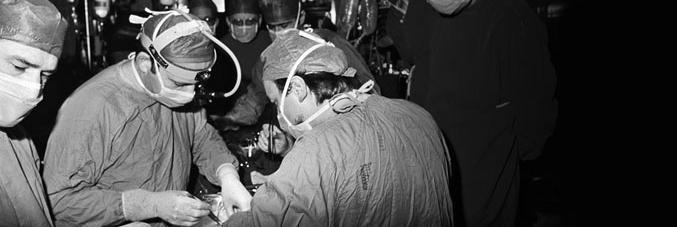
Unipd Scientists Participate in a 2024 World Economic Forum Panel
02.07.2024
The World Economic Forum has released the Top 10 Emerging Technologies of 2024 Report, which shares technologies poised to influence societies and economics over the next five years significantly.
Knowing that organ transplants save human lives, the need for organs far outstrips the available donor pool. Therefore, among many distinct topics, the panel on Genomics for Transplants discussing gene-editing organs for transplantation advancements welcomes Department of Cardiac, Thoracic and Vascular Sciences, Transplant Immunology Unit scientist of the University of Padua Hospital, and former President of the European Committee on Organ Transplantation at the Council of Europe in Strasbourg, Prof Emanuele Cozzi.
As the only representative from an Italian university, Prof Cozzi joins the panel along with Prof David K Cooper of Harvard Medical School, Prof Geoffrey Ling of Johns Hopkins Hospital, and IBM Chief Innovation Officer Bernard Meyerson.
In the US alone, more than 100,000 patients are awaiting an organ transplant, yet only approximately 30,000 organs will become available this year.
To meet this need, for more than three decades, progress has been made in the science dealing with the transplantation of organs from animals into humans known as xenotransplantation. Thanks to technology like CRISPR-Cas9, it is now possible to create multiple genetic manipulations in a single pig to overcome immunological rejection. In March of this year, the first successful transplant of a non-human (pig) kidney into a living human was performed in Boston.
Prof Cozzi explains, “Without prejudice that research is a conditioning pillar of all sciences at an international level, it is our duty to take stock of the state of the art regarding animal-to-human transplantation. Despite great progress, xenotransplantation cannot replace human organ donation. The preclinical results are encouraging, undoubtedly showing how xenotransplantation can increase the survival rate of the transplant recipient while improving a patient’s quality of life. As of date, the only animal-to-human transplants have been done in the USA and China, I hope they can also be done in Europe and, why not, in Italy. Through my contribution, my fellow researchers and I aim to make xenotransplantation a reality at home too.”



